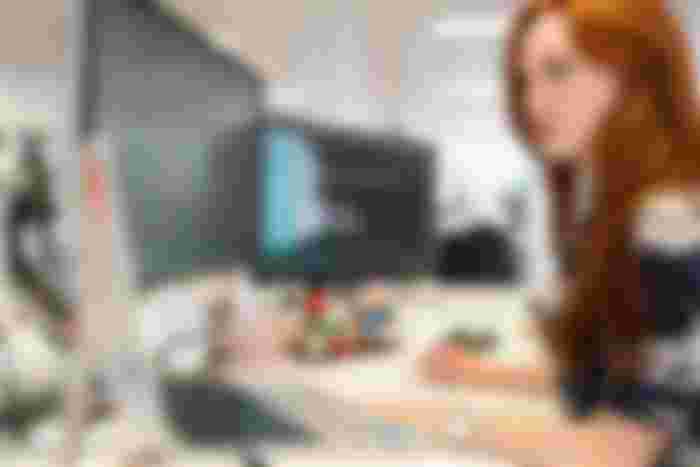How Multitasking Helps Developing Your Focus In Life
Multitasking is a skill that almost everyone believes they have - the ability to juggle more than one task at a time and do them all well. And it is a skill that is in high demand, especially in this era of multitasking and constant distractions. What many people don't know, however, is that multitasking can be developed like any other skill.
Multitasking is one of the most efficient ways to get things done. However, for some people, it's a never-ending source of guilt and self-doubt. People often feel like they're not doing any task justice, because they're constantly bouncing between them. That said, it is possible to make multitasking work for you and develop better focus in life. You just need to be strategic about it.

What Is Multitasking?
Multitasking is the practice of engaging in two or more tasks simultaneously. While this can include everything from emailing and instant messaging to texting, watching TV and even doing your own laundry, the common element in all of these activities is that you're doing them while doing something else - or at least intending to do them at the same time.
However, multitasking can also involve switching between two or more tasks without giving adequate attention to either one. This is often the source of much stress and anxiety for those who practice it regularly. How effective you are at multitasking largely depends on the quality and quantity of the time and space you devote to each individual task. The first step for you to become a more effective multitasker is to understand the difference between effective and ineffective multitasking.
What Is Effective Multitasking?
In order to be more effective at multitasking, you first need to understand the concept of effective multitasking, also known by the acronym EM. Effective multitasking is a practice of switching rapidly between tasks in a way that allows you to give each individual task your full attention, while also allowing you to connect the dots between your tasks so that you have a sense of the larger whole. If you're really good at it, you don't even notice that you're doing it. It's just a natural part of how you operate.
What Is Ineffective Multitasking?
In contrast, ineffective multitasking can be described as the opposite of effective multitasking. As the name suggests, it involves the doing of several things at once. However, you're not making full use of your time and resources, and as a result, the quality of work you produce suffers. In other words, it's a haphazard use of time and energy.
This often occurs when there are too many distractions and interruptions to pay attention to, which can prevent you from doing a task that needs your undivided attention. When this happens, you're not really fully participating in the work or life situation at hand. And as a result, you get less out of the experience.
How Does Multitasking Help In Developing Focus In Life?
The first and most obvious reason why multitasking can help you develop focus is that it saves time. You're able to complete multiple projects at once - and therefore get more work out of your day - because you aren't spending countless hours switching back and forth between tasks.
Another benefit of multitasking is that it reduces the amount of stress you feel by allowing you to take a brief break from whatever you're doing to recharge and refocus. When you're constantly switching tasks and not giving your full attention to any of them, you're not developing focus. This is especially important if you work in an environment where distractions are rampant, like at your computer.
Last, but not least, multitasking allows you to develop a variety of life skills, which cannot be learned in any other way.

How Can You Be More Effective As A Multitasker?
When it comes to being more effective as a multitasker, there are two things to keep in mind. The first is to divide your time and space effectively so that you can give each task your full attention. If you're writing an article, for example, you might create a separate document or a different document tab on your computer to work on that specific project. You could also leave your phone in a different room if you're working remotely so that you can shut out certain noises and distractions.
The second is to take regular breaks between tasks. It is during these time-honored breaks that you can truly switch your focus and recharge your mental batteries. Taking regular breaks also gives you the mental room to reflect on what you've accomplished thus far and what needs to be done next. It also gives you the mental space to connect unrelated tasks, so that you can see the larger picture of what you're trying to accomplish. Taking breaks is also how you preserve your sanity!
When you feel like you just can't take any more with a certain task, take a break. You might be surprised at how much more you can do once you return to the task. In the end, being a more effective multitasker means you'll be able to get more work done and accomplish much more in a day. That's why it's so important that you learn the art of it.
Multitasking Or The Art Of Focus?
Effective multitasking is not a skill that can be learned in a day or a week. It's an art that must be cultivated over time. While some people are naturally good at it, most of us need to put specific practices and strategies in place to become better at it. The good news is that, like most skills, effective multitasking can be improved if you put in the effort to learn how to do it.
If you feel like you're too busy or too distracted to focus on just one thing, effective multitasking can allow you to give that one thing your full attention anyway. When you're distracted, effective multitasking allows you to get back on track and refocus. Even more importantly, effective multitasking allows you to produce work or life experiences that you're truly proud of.
For most of us, however, we're probably more effective if we learn to focus on one thing at a time. So when we're choosing what to focus on, we're also making a choice about how to live our life. Will we choose to focus on one or two things at a time? Will we choose to focus on the big things, or the little things?
It's a decision that everyone has to make, and they're usually not made lightly. But when you think about it, effective multitasking is merely the practice of focusing on the big things, and effective focusing is merely the practice of effective multitasking.
Putting It All Together
So, the next time you find yourself distracted, think about whether you're really focusing on the important things, or whether you're getting sidetracked by a hundred different things. Think about whether you're making full use of your time and resources, or whether you're squandering them away. Then, put a plan in place that commits you to do the things that need to be done. Focus on the big picture, and leave the little things to your effective multitasking.




The efficiency of multi-tasking is depend on how much our body can handle it. It is good if we are in effective multitasking as you mentioned.